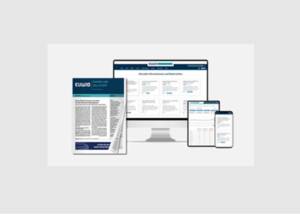The unintended consequence of EU reuse targets
News General news
The European Packaging and Packaging Waste Regulation (PPWR) envisages the packaging industry moving towards a sustainable circular economy. The proposals include binding reuse quotas for packaging of household appliances and for mail order.

The problem: The planned reuse targets for transport packaging favour plastic and disadvantage recyclable materials such as corrugated cardboard and cardboard packaging. Saverio Mayer, CEO of Smurfit Kappa Europe warns: "The way the reuse of packaging is planned would lead to the amount of unnecessary plastic doubling by 2040 instead of being significantly reduced." For example, to meet the reusable transport packaging target, the sheer volume of 8.1 billion additional plastic boxes would have to be produced (assuming 10 reuses per year).
The European corrugated industry basically shares the European Union's ambition to pave the way to climate neutrality: "We support the ambitious goals of the EU regulation," says Saverio Mayer. "However, the Commission's proposal is counterproductive by penalising paper-based recyclable packaging."
Corrugated board: a sustainable product with high recycling rates
Packaging made of corrugated board is very well suited for a sustainable circular economy because it is collected and recycled on a large scale. This is evidenced by high recycling rates: The recycling rate for cardboard is over 90 per cent, corrugated board has a recycling rate of 89 per cent. Saverio Mayer summarises: "Paper-based products are fully renewable, recyclable and biodegradable. What's more, Europe has the highest recycling rate in the world."
The environmentally friendly balance of paperboard is also proven by a comprehensive study commissioned by the European Federation of Corrugated Board Manufacturers (FEFCO). The study shows that corrugated board packaging scores better than recyclable plastic boxes in 10 out of 15 environmental impact categories, including carbon footprint.
What the preference for plastic means for the environment
The European Union's planned regulations, on the other hand, risk increasing plastic packaging and thus plastic waste and pollution. This would have a disastrous impact on the environment - and is completely at odds with the objectives of the European Green Deal, the Circular Economy Action Plan and the ongoing negotiations on an international plastics agreement. The proposed amendments also contradict what Commission President Ursula von der Leyen said in her speech at the Beyond Growth Conference in the European Parliament: "A growth model that focuses on fossil fuels is simply outdated."
In the case of transport packaging, reusable plastics will not only increase energy and water consumption, but also transport volumes. The reuse of transport packaging will lead to a massive increase in logistics, which will overload European roads.
A sustainable industry in danger
The regulations are also a threat to the sustainable paper and corrugated industry. They could have serious consequences for local communities and supply chains: The industry is, after all, a local producer and employer with over 660 mills across Europe. 100,000 people are directly employed here, and another 270,000 jobs are indirectly created.
Corrugated packaging is a valuable partner in the B2B supply chain. Most food and beverages available to consumers at retail today are reliably protected by paper-based packaging. Damaged goods put a strain on the planet by wasting food, fuel and other resources.
Reuse and recycling must continue to complement each other in the future
The one-sided approach to reuse is not a panacea for the packaging problem. Corrugated board is the most recycled material due to its properties, which at the same time means that reuse is not a realistic option for most applications. The only credible way forward for Europe is for reuse and recycling to co-exist on an equal footing.
Boris Maschmann, CEO Smurfit Kappa DACH adds: "As negotiations continue between the EU institutions, it would be expected that the political ambitions of the EU and Member States take into account the economic reality of the packaging supply chain and agree on a regulation that is good for the environment, the economy and society in general."










